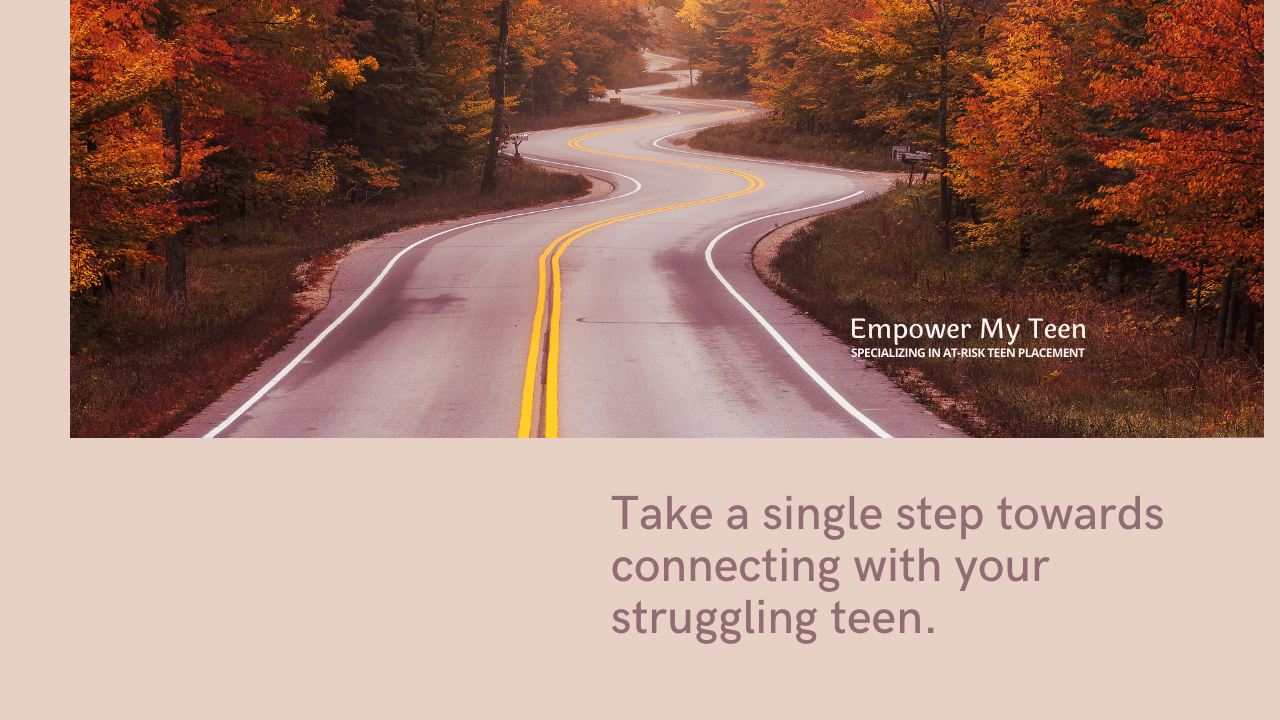Dealing with a Disrespectful Teenager: But my Kid is a Good Kid!
Every parent worries about their child, but for some parents, it is more than just worrying. A difficult and disrespectful teenager can make your life a living hell. Many parents live in fear because their kid’s behavior is out of control, and they don’t know what to do about it.
These days, many parents struggle with teen defiance and rebellion as teens push boundaries and ignore the house rules. Consequently, therapy for disrespectful teens offers hope and guidance.
In this article I’m sharing proven parenting strategies that have helped me and many of my clients reduce behavioral problems in teens. You don’t have to go through this alone. I want you to know that there’s hope, and you have options!
“My kid is a good kid. He is not into heavy drugs (meth or heroin) has not been arrested for a violent crime and is not setting fires, but he is making my life HELL!”
I hear this almost daily from every parent who schedules a consultation. And I get it. I really do understand those feelings because I felt the same way about my teenage daughter.
When my daughter was a teen, I knew she wasn’t a “bad” kid, but most days, I felt she was making my life a living hell.
- She was so disrespectful
- She was failing school
- She started to use drugs
- She was sneaking out with boys
And if those behaviors weren’t scary enough, then I discovered she was stealing from stores and me. This was such a scary time!
The Effect of Defiant and Disrespectful Teenager Behavior on the Parent
My daughter’s disrespectful behavior and poor choices nearly cost me my career. Every time my phone rang, I felt panicky and worried I would get fired. All these phone calls meant I had to leave work to put out another one of her fires.
I felt so helpless. I wasn’t sleeping and secretly crying all the time. I felt ashamed, embarrassed, and utterly alone. So yes, I felt like my life was a living hell!
I tried everything to make things better for my daughter and to improve our lives. For example, not only did we go to therapy together and separately to work on her defiance and anger, but when she refused to go to a therapist, I made arrangements to have the therapist come to our home.
Then, I took her to her pediatrician, and they put her on meds for depression and anxiety, unfortunately, that made things worse!

Struggles of a Teenager: Battling Low Self-esteem and Finding Hope
Like most parents, there’s nothing I would not do to help my daughter, and after everything I tried failed, I thought the answer was to find a new environment. After all, if she hadn’t been hanging out with those “friends,” she would have done better.
Consequently, my hopes were high, I found a new school for her. Imagine my despair when she found the same type of kids at the new school and befriended them; and, then refused to do any schoolwork.
Losing Joy: When Teens Abandon Activities They Love
Her choice to continue to misbehave and rebel only made everything worse. Next, she dropped out of every activity that brought her joy, such as sports and bands, etc. It seemed that all my daughter wanted was to have the freedom to come and go as she pleased and to make my life hell.
Despite all the drama, I knew without a doubt that she was a good kid. My daughter is intelligent, funny, athletic, and very caring. She loves animals and babies. I saw the good in her, but the problem with my defiant daughter was that she could not see these wonderful qualities in herself. I soon realized that sadly, like many other teenagers at this age, her biggest struggle was with herself. She felt lost and hated herself.
Recognizing the Signs of Low Self-Esteem in Teens
Looking back at her choices and decisions, it was apparent how little she loved herself and had no self-esteem. It was a heartbreaking and shocking realization as I saw my daughter struggle with self-esteem. I came to realize it wasn’t her behavior; she needed mental health treatment.
When I finally recognized that her defiant behavior stemmed from deeper issues, and she needed more help than I could give her. I knew I had to do something else, try something new, but what? Still, I was that same parent who thought only the bad kids got sent away to therapeutic residential programs, and she was not a bad kid!

The Parent’s Emotional Turmoil of Seeking Professional Mental Health Help
The truth is, seeking help for your child doesn’t mean they are “bad” or that you failed as a parent. In fact, it is a love decision, and it is brave! As I started thinking about finding a therapeutic boarding school that would help her get to the root of her behavioral health issues, my feelings were all over the place. As parents, we worry about what our family and friends will think of our decisions. I was afraid that my parents and friends would think I was making the wrong decision or that, somehow, I was evading my parenting responsibilities. In retrospect, it seems silly that I struggled with this decision for so long.Overcoming My Fears to Help Her Mental Health
The next big fear I faced was the thought that she would hate me. I constantly questioned my thoughts.- What would she think?
- Would she ever understand that I was doing what was best for her?
- Would she think I was punishing her or I didn’t love her?
- Would she be safe so far away from home for such a long time? To me, at that point, six months seemed like an eternity.

How to Deal with a Chronically Defiant and Disrespectful Teenager?
It is hard to watch our kids make bad decisions, and it is even harder to see them following a dark path. As parents, we want nothing more than for our children to be happy and successful in life. So when they head down a dangerous path, it can be excruciating to know what to do. This is the time when it is important to remember three parenting strategies, even though, if we are honest, there will be times you won’t feel like it.- You can have non-negotiable expectations of your teenager without being controlling or critical.
- Family rules work best when we provide rational explanations for our expectations. But ultimately, you must maintain your authority. (This is a toughie for some of us who were raised to “just do” because I said so.)
- We can’t avoid conflict with our teens, but we don’t have to be at war. Showing affection, warmth and being sensitive to the fact that they are changing as they grow helps them remember that they are still loved.

The Truth About Therapeutic Programs
Here is the truth: excellent therapeutic programs exist for teens like yours and mine. These adolescent treatment programs are designed to help the good kids making poor choices make better ones. They offer individualized therapy, academics, opportunities for personal growth and a safe and structured environment where they can get to the root cause of their struggles. The programs I work with are not for bad kids; they are for kids struggling with adolescence and mental health. They have tons of experience working with difficult, defiant, disrespectful teenagers who are vaping, failing school, and not following the rules.What to Expect from a Reputable Therapeutic Treatment Program for Teens Struggling with Mental Health
The best therapeutic teen programs provide support and guidance and teach teenagers to make better choices. Imagine a place where your teen won’t be labeled but would be truly understood. A reputable therapeutic program where they can:- Understand what they are feeling and why.
- Develop better coping skills.
- Rediscover their passions and potential.
- Get compassionate help and individualized therapy.
- Learn how to control their impulsivity even when they are under stress.
- Confront their feelings instead of avoiding them.
- Come to understand the deeper underlying issues that cause them to act out and face their self-esteem-related problems.
- Individual and group therapy
- Cognitive behavioral therapy
- Nature-based therapy
- Adventure therapy
- Experiential therapy
- Life skill training
- Academic support that helps them catch up with their school work.

Facts every parent in this situation should know:
- Not all struggling teens need a residential treatment program.
- Every therapeutic program is different, making it hard to know which is right for your child.
- Nature-based therapy programs and residential treatment centers provide intensive residential therapy.
- The right treatment program for your teen depends on their unique needs and circumstances.
Can Teen Wilderness Programs and Therapeutic Boarding School Traumatize or Harm My Child?
Parents considering a nature-based therapy program like wilderness or residential treatment program like a therapeutic boarding school or a residential treatment center must know that some have a reputation for being abusive and dangerous. Many troubled teen programs have been accused of abusive and harmful practices, and many graduates have trauma from their experiences. After working in this industry for over twenty years, I’ve seen firsthand the damage some of behavioral modification programs can cause. This is why hiring an educational or therapeutic consultant to help you make informed decisions is critical. Whatever you do, please do not solely rely on what you read online in groups or on the school marketing websites.What to Expect from a Mental Health Therapeutic Program for Adolescents
Today’s best teen therapeutic programs offer treatment for:- Technology addiction
- Depression disorders
- Anxiety disorders
- Substance misuse
- PTSD and trauma
- Mood and Conduct disorders
- Self-harm and Suicidal tendencies
- Other mental and behavioral health deficits and low self-esteem.
- Kids with ADHD who are struggling to thrive.
- Kids with learning disorders or those on the spectrum.

Timing is Everything!
The time to start the process for a chronically difficult or disrespectful teenager is before they are suspended from school or get in trouble with the law. The best teen programs prefer to work with a child before they are in trouble or the teen behavior has become drastic or the teen is in crisis.
After your teen is at the extreme stage and things have progressed too far down south, these RTCs would not be able to accept them. Severe cases need a much higher level of care. The best way to help your teen is to take action before the situation gets out of control. So, if your teenager is a good kid making poor choices, reach out to me to discuss the right treatment options for your family.
Resources:
If you would like:
- A healthier relationship with your struggling teen
- To gain clarity on difficult child-rearing decisions that impact your teenager’s future.
- Or need someone to run a parenting situation by without being judged
Visit my Parent Coaching Services Page to learn more about my parenting coaching offers.
Sources:
- Schwartz, O. S., et al. (2012). Parental Behaviors During Family Interactions Predict Changes in Depression and Anxiety Symptoms During Adolescence. Journal of Abnormal Child Psychology, 40(1), 59-71. https://doi.org/10.1007/s10802-011-9542-2
- UC Davis Health. (n.d.). The Power of Positive Parenting. Retrieved from https://health.ucdavis.edu/children(UC Davis Health
- University of Minnesota Extension. (n.d.). Social and Emotional Changes in Teens. Retrieved from https://extension.umn.edu/teen-development/social-and-emotional-changes-teens(
- UCLA Center for the Developing Adolescent. (n.d.). What the Science Tells Us About Parenting an Adolescent. Retrieved from https://developingadolescent.semel.ucla.edu





